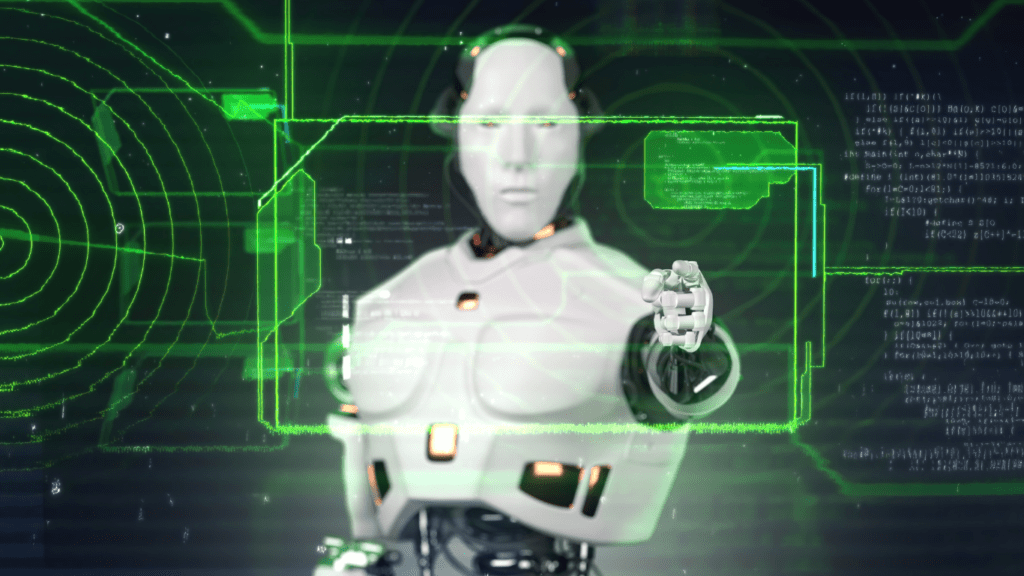In the ever-evolving landscape of crypto trading, the integration of artificial intelligence has become a game-changer. As an avid enthusiast of both technology and finance, I’ve witnessed firsthand the transformative power of AI in reshaping the future of trading.
From predictive analytics to algorithmic trading strategies, AI is revolutionizing how transactions are executed in the volatile world of cryptocurrency.
In this article, I’ll delve into the pivotal role that artificial intelligence plays in enhancing trading efficiency, minimizing risks, and maximizing returns in the realm of crypto markets. As a seasoned observer of market trends, I’m excited to explore how AI-powered tools are empowering traders to make data-driven decisions with precision and speed. Join me on this journey as we unravel the impact of AI on the future of crypto trading.
Understanding the Current Landscape of Crypto Trading
As I delve into the current landscape of crypto trading, two key aspects stand out: the impact of traditional trading strategies and the rapid adoption of artificial intelligence (AI) in this dynamic environment.
Impact of Traditional Trading Strategies
In the realm of crypto trading, traditional strategies have long been the cornerstone of decision-making processes for traders. Strategies like technical analysis, fundamental analysis, and sentiment analysis have been instrumental in guiding investment choices and predicting market trends.
While these strategies have provided a solid foundation for trading activities, the volatile nature of the cryptocurrency market often calls for more advanced and adaptive approaches.
Adoption of Artificial Intelligence in Crypto Trading
The advent of artificial intelligence has revolutionized the way traders approach crypto trading. AI technologies, such as machine learning algorithms and natural language processing, have enabled traders to analyze vast amounts of data at unprecedented speeds.
By leveraging AI-driven tools, traders can gain valuable insights, automate trading processes, and develop sophisticated trading strategies that outperform traditional methods. The rapid adoption of AI in crypto trading underscores its potential to drive innovation, enhance trading efficiency, and navigate the complexities of the digital asset landscape.
Advantages of Using Artificial Intelligence in Crypto Trading
Artificial intelligence (AI) offers significant advantages in the realm of crypto trading, enhancing decision-making processes and enabling automated trade executions for more efficient transactions.
Improved Decision Making
Utilizing AI in crypto trading empowers me to make data-driven decisions swiftly and accurately. AI tools like predictive analytics analyze market trends and patterns, providing valuable insights that guide strategic moves in real time.
Automated Execution of Trades
Implementing AI technology automates trade executions based on pre-defined conditions and algorithms. This ensures timely and precise transactions, eliminating potential delays caused by human intervention and emotions.
Challenges and Risks Associated with AI in Crypto Trading
Exploring the integration of artificial intelligence (AI) in crypto trading unveils certain challenges and risks that traders need to navigate effectively. While AI presents remarkable opportunities, it also poses potential pitfalls that require careful consideration.
- Data Quality and Bias: Ensuring the accuracy and reliability of data input into AI systems is crucial. Inaccurate or biased data can lead to flawed outputs and decisions, impacting trading performance negatively. Being mindful of data quality and addressing biases is essential to maintain the effectiveness of AI tools in crypto trading.
- Overreliance on AI: While AI can analyze vast amounts of data quickly, overreliance on automated systems may lead to complacency among traders. Relying solely on AI-generated insights without human oversight can result in missed opportunities or erroneous trading decisions. Balancing AI’s capabilities with human judgment is vital to mitigate this risk.
- Cybersecurity Threats: The advanced technology powering AI systems in crypto trading also attracts potential cybersecurity threats. Hackers may target AI algorithms or data sources, compromising sensitive information or manipulating trading activities.
- Regulatory Challenges: The evolving regulatory landscape surrounding AI and crypto trading poses challenges for market participants. Compliance requirements, data privacy regulations, and jurisdictional issues can impact the use of AI tools in trading activities.
- Market Volatility and Unforeseen Events: Despite AI’s sophisticated predictive capabilities, market volatility and unforeseen events can introduce uncertainties. Sudden market shifts or unexpected developments may challenge AI systems’ adaptability and predictive accuracy.
Navigating these challenges and risks associated with AI in crypto trading demands a comprehensive understanding of both technological capabilities and market dynamics. By being aware of potential pitfalls and adopting a proactive approach to risk management, traders can harness the power of AI effectively while safeguarding their trading activities in the dynamic crypto landscape.
Future Prospects and Trends of Artificial Intelligence in Crypto Trading
Exploring the future prospects and trends of artificial intelligence (AI) in crypto trading reveals exciting developments shaping the landscape. The integration of AI technologies continues to redefine how traders operate in the dynamic cryptocurrency market. AI-driven tools, such as predictive analytics and machine learning algorithms, are at the forefront of this transformation.
- Enhanced Decision-Making: AI empowers traders to make rapid, data-driven decisions by analyzing market trends and patterns in real time. This capability enhances decision-making efficiency and accuracy, enabling traders to capitalize on opportunities swiftly.
- Automation of Trade Executions: AI facilitates automated trade executions based on predefined conditions and algorithms. By automating trades, AI helps ensure timely and precise transactions while reducing the impact of human emotions on trading decisions.
- Advanced Data Analysis: Machine learning algorithms and natural language processing enable traders to analyze vast amounts of data efficiently. This advanced data analysis capability provides traders with valuable insights into market dynamics and helps them stay ahead of changing trends.
- Risk Mitigation: Despite the benefits AI offers, it is essential to address associated risks. Ensuring data quality and mitigating bias are crucial aspects of leveraging AI in trading. Traders must maintain a balance between AI-generated insights and human judgment to avoid overreliance on automated systems.
- Cybersecurity Challenges: Protecting AI algorithms and data sources from cybersecurity threats is paramount. Traders need robust security measures to safeguard their operations and sensitive information from potential breaches.
- Regulatory Considerations: The evolving regulatory landscape in the crypto market can impact the use of AI tools in trading. Traders must stay informed about regulatory changes and adapt their strategies to comply with emerging guidelines.
Understanding the future prospects and trends of AI in crypto trading requires a proactive approach to leverage its benefits while managing associated risks effectively. By embracing AI technologies responsibly and staying informed about market developments, traders can capitalize on the innovative capabilities that AI offers in navigating the complexities of the digital asset landscape.


 Maya Dooley has played a crucial role in the development of Lend Crypto Volt, contributing her expertise and insights to shape the platform's direction. With a background in finance and technology, Maya's analytical skills have been instrumental in crafting in-depth market analyses and risk management strategies. Her dedication to user education ensures that Lend Crypto Volt remains a valuable resource for anyone navigating the complex world of cryptocurrency.
Maya Dooley has played a crucial role in the development of Lend Crypto Volt, contributing her expertise and insights to shape the platform's direction. With a background in finance and technology, Maya's analytical skills have been instrumental in crafting in-depth market analyses and risk management strategies. Her dedication to user education ensures that Lend Crypto Volt remains a valuable resource for anyone navigating the complex world of cryptocurrency.